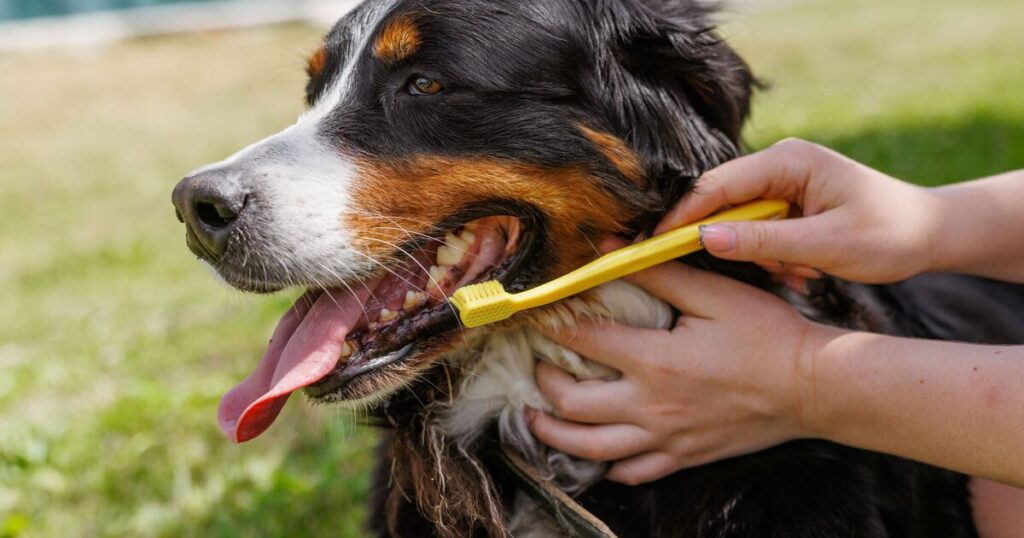
If you’ve got a pet dog at home, chances are you’ll have woken up at least once to your pooch staring you in the face in the morning. While this can be an adorable way to wake up, your dog’s breath could really ruin the experience.
It’s never going to be pleasant, but if your dog’s breath is particularly bad, it could be a sign of a much bigger – and more expensive – problem. Veterinary experts at Budget Pet Products are urging pet owners to take their pets’ oral health seriously, before it costs them thousands in vet bills. Foul-smelling breath can be a major indicator of dental disease, so it’s important to take action quickly.
Dr. Heather Burton, Veterinary Advisor at Budget Pet Products, said: “Dental disease is one of the most common health problems we see in pets, with up to 80% showing signs by the age of two. Yet many owners don’t realise their pets are suffering until the problem is severe and costly to treat.”
Untreated dental disease can lead to painful tooth loss, abscesses, and severe infections.
“In advanced cases, pets may need dental surgery costing thousands just to remove a few damaged teeth,” Dr. Heather warned. “Worse still, dental disease can allow harmful bacteria to spread through the bloodstream, affecting vital organs like the heart, liver, and kidneys.”
Warning signs to look out for
Many owners don’t realise their pets are affected until the problem becomes severe. One of the earliest and most noticeable signs is persistent bad breath, often dismissed as “normal doggy breath”. However, this is often the first indication of plaque and tartar buildup.
Other signs include:
- Yellow or brown staining on teeth
- Pawing at the mouth
- Difficulty eating
- Excessive drooling
- Swelling around the face
How to keep your dog’s teeth healthy
Dr Heather Burton is urging pet owners to start their dental checks from one year of age. Regular dental exams allow early identification of plaque and tartar before they cause significant damage.
However, you can do certain things at home to help reduce the risk. Brushing your pet’s teeth regularly with pet-safe toothpaste can reduce placque build-up, and dental chews can be beneficial as well.
Taking these steps, plus getting your pet’s teeth checked out if you spot any issues, could help you save money on vet bills and keep your pooch happy as well.
 Latest Breaking News Online News Portal
Latest Breaking News Online News Portal






